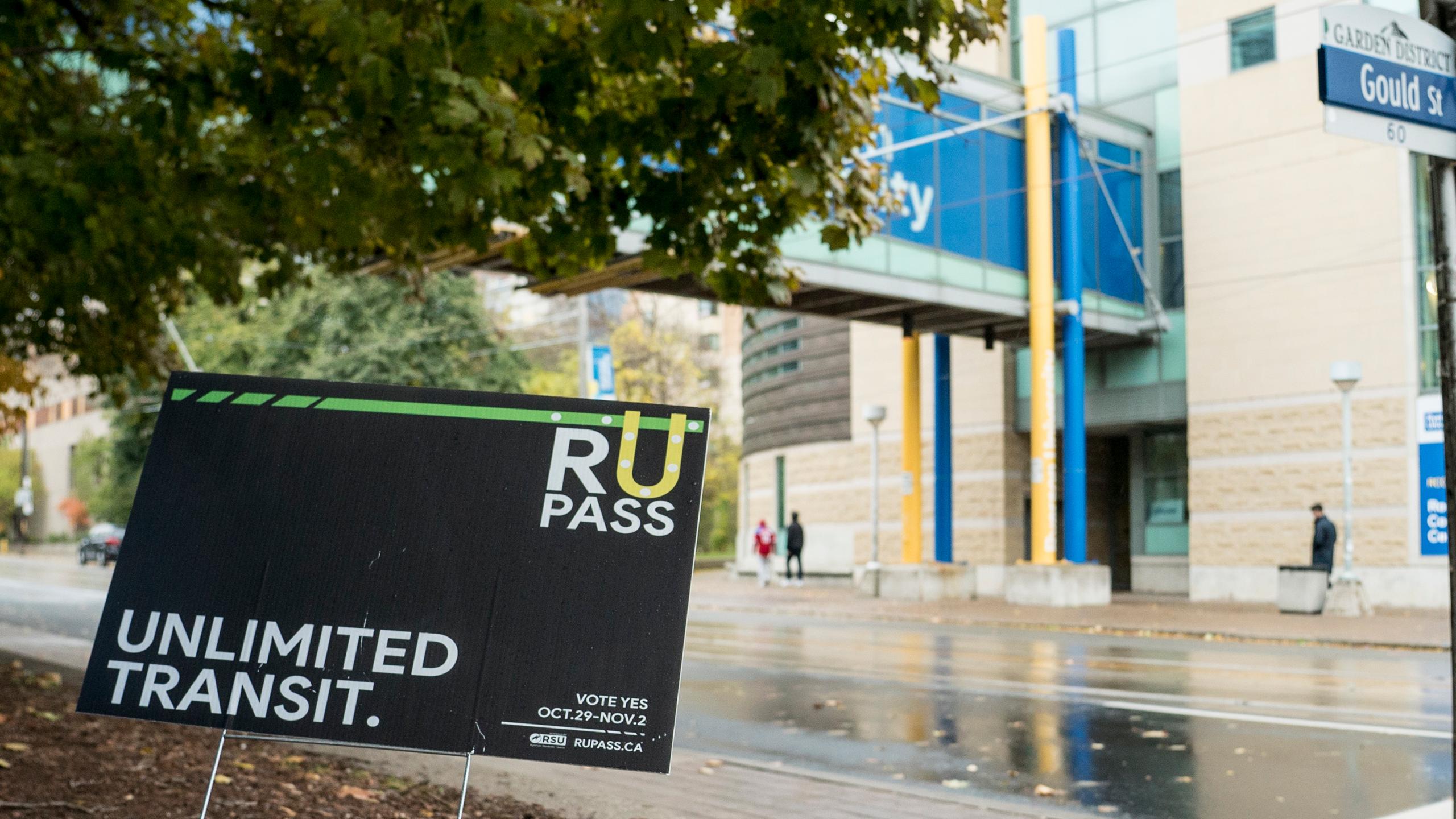By Raneem Alozzi
Over 10,000 Ryerson University students voted in favour of the RU-Pass last week, making Ryerson the first university in Toronto to implement a universal transit pass.
Starting in September 2019, full-time Ryerson students will have unlimited access to the TTC transit system: buses, subways and streetcars. It will come at a total pricetag of $564 per academic year.
“To see the results come out and seeing students believing in the idea helped all of our states of mind…emotionally and mentally [the referendum] was very draining, and we’re glad it ended the way it ended,” said Ram Ganesh, president for the Ryerson Students’ Union (RSU).
About 43 per cent of eligible students voted in the RU-Pass referendum. Of the 16,331 votes submitted, 6,079 students voted against implementing the pass.
A monthly post-secondary TTC pass currently costs $116.75 a month. The RU-Pass will cost students $70 a month, totalling $280 a semester with an additional $2 service fee.

Infographic by Alanna Rizza
Students can only opt out of the pass if they are unable to use transit due to grounds protected under the Ontario Human Rights Code. Opt-out requests will be assessed on a case-by-case basis by Ryerson’s Office of the Registrar.
Last March, University of Toronto students voted against implementing a universal transit pass. George Brown College and OCAD University still haven’t decided on referendum dates.
Eduardo Rodríguez, a third-year business management student who lives downtown, voted for the pass because he thinks he’ll start using the TTC more often if he has it.
For Rodríguez, one of the main reasons he doesn’t use transit now is because the post-secondary student pass—although much cheaper than an adult pass—is unaffordable for him.
“The fact that it’ll be included in my tuition, $70 a month, I know that I’ll start using the TTC more. Even if it’s just one station or to the next stop,” said Rodríguez.
The TTC expects the U-Pass will result in an increase in ridership. Due to the impact on ridership in other cities with universal transit passes for students, such as the University of Ottawa and McMaster University, the TTC is predicting a 15 per cent increase in ridership.
Many new riders will be infrequent customers who will increase their transit use—like Rodríguez.
But for other students, who have little to no use for Toronto’s local transit services, the mandatory pass is an annual $564 dollars spent on something they will barely use.
Luc Dupuy, who lives on campus, voted “no” because there isn’t an opt-out option.
“It’s absolutely a great thing for those who will utilize it…I just don’t know that taking money out of other students’ pockets is the way to do this,” he said.
“Unfortunately, the reality is that for the people who voted ‘no,’ it won’t benefit them. Many walk from Union [Station], or live on campus,” said Rodríguez. “In a perfect world, we’d have an opt-out option…but that’s not the case.”
Ganesh said the RSU plans to look into the reasons why people voted ‘no’ and see if they can widen the criteria for who can opt out.










Leave a Reply